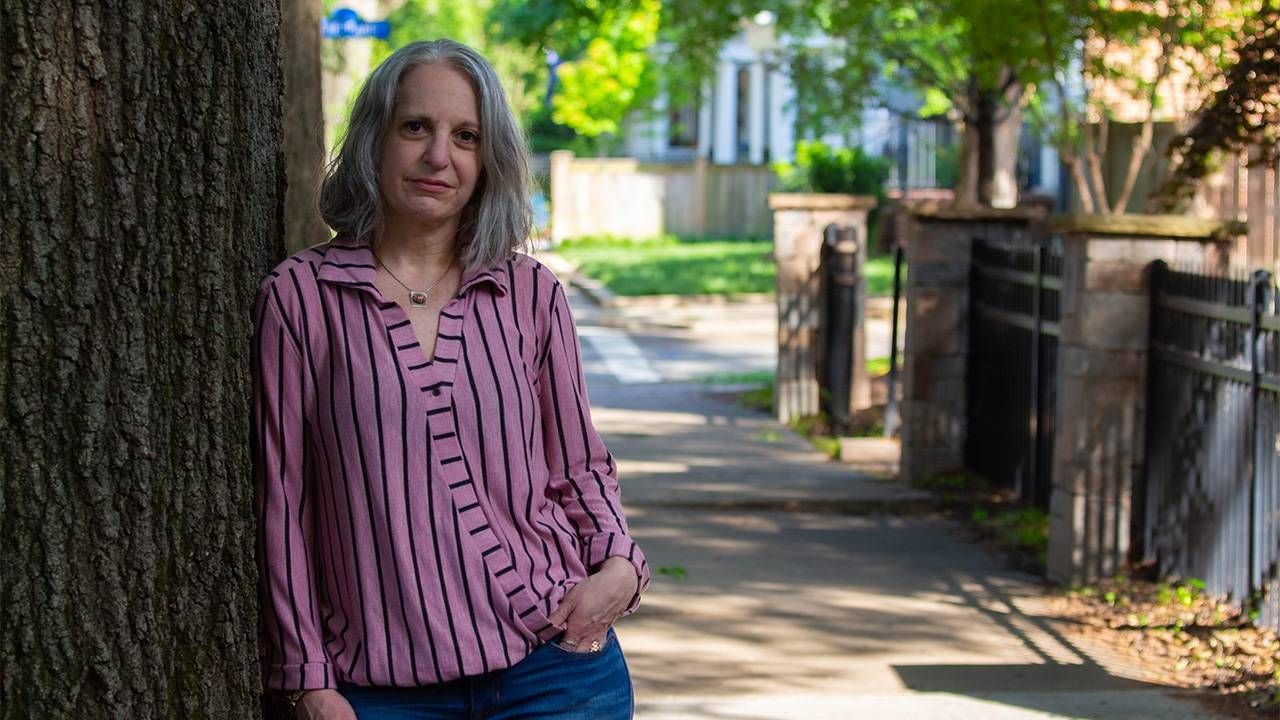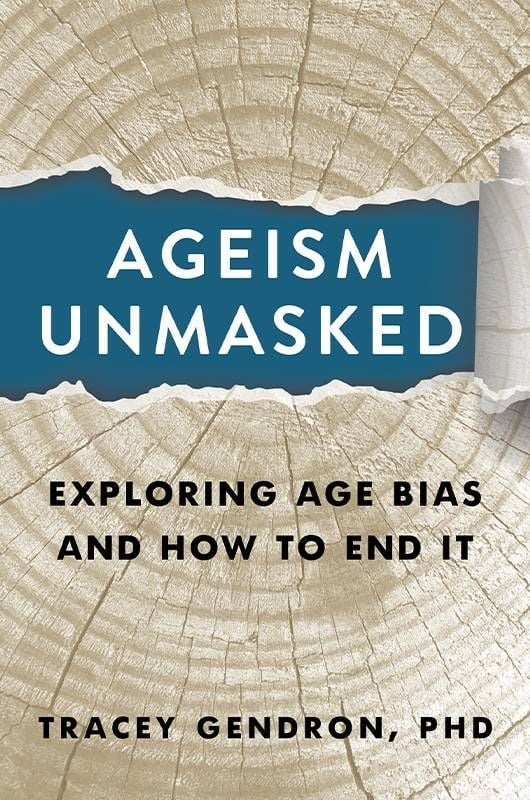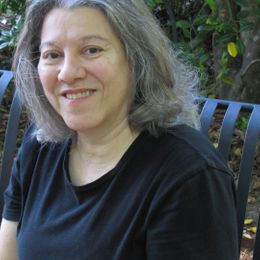Exposing the Face of Ageism
Gerontologist Tracey Gendron reveals why understanding the complexities of age bias is a vital first step in taking effective actions to end it
If the growing number of books and articles published on the subject of ageism is any clue, it looks like we may be reaching a tipping point in raising awareness of the only form of discrimination that potentially affects everyone. Age bias toward people of all generations pervades our culture because the concept of aging itself is still grossly misunderstood, reduced to negative stereotypes that are fear-based and dangerous.

That is why I was both curious and excited to read "Ageism Unmasked: Exploring Age Bias and How to End It" by Dr. Tracey Gendron, chair of the Department of Gerontology at Virginia Commonwealth University and newly named executive director of the university's Virginia Center on Aging.
In my opinion, the book deftly answers three basic questions regarding the existence of ageism: "How did we get here?," "Why are we still here?" and "How do we move forward from here?" by offering clear analyses of the evolution and challenges of ageism as they relate to health care, employment, technology, social policy and mass communication.
The strategies Gendron proposes to disrupt age bias and embrace elderhood are both pragmatic and refreshing. In a recent conversation, we discussed her approach to these issues.
The interview has been edited for length and clarity.
Jeanette Leardi: Other books have been published on the subject of ageism. What made you decide to write your own? How is your book different, in content and/or approach?
"When we unmask from ageism we let go of the shame and are empowered to create our own definition of beauty, success and individuality."
Tracey Gendron: First, I don't think there can be too many books on the subject of ageism. Different styles and approaches speak to different people. The approach to my book was inspired by a comment I hear frequently when I am talking to people about ageism: 'Didn't we used to revere aging and elders?' The answer to that question is both yes and no, and it got me thinking that an exploration explaining the complexities of ageism and how it evolved over time was important.
Your book is called "Ageism Unmasked." What mask do we hide behind when we consider issues of aging, and why is it necessary to take it off?
In a society where youth is valued over old age, shame about age becomes something that many of us carry around as we grow older. When we unmask from ageism we let go of the shame and are empowered to create our own definition of beauty, success, and individuality. I can't think of anything more freeing than having the power to unmask and reclaim your value at all ages and stages of life.
'When Does Old Age Begin?'
Looking at it another way, most instances of ageism are so invisible that we need to be actively prompted to take off our blinders in order to see it clearly. It is that ingrained in our daily lives and our thinking. We need to be prompted to recognize that we are taught to fear aging because it is presented to us as a singular process of decline.
Once we see that aging itself is a dynamic process and that ageism is what informs our misunderstanding about aging, we can actively choose a different response and work toward embracing aging and becoming old.
You write, 'One of the most challenging aspects of doing my job as a gerontologist is that I have not personally experienced old age.' You let readers know that you are 50. When does old age begin? Do you expect your views on aging and ageism to change when you reach that point?
'When does old age begin?' is an interesting question and one that does not have a definitive answer. After all, when does adulthood begin? Is it arbitrarily when we turn 18, or are there other milestones and markers that provide better indicators? There is no single path to elderhood nor a normative age at which it begins. It is individually driven and uniquely determined by each person.
"We need to be prompted to recognize that we are taught to fear aging because it is presented to us as a singular process of decline."
As to the second question, absolutely, I believe that my views on aging and ageism will continue to evolve and change as I age. To me, that is part of the beauty of aging—we never stop growing and developing.
Why do you believe that our cultural expectations of healthy aging are unrealistic?
We should all do our best to live a healthy lifestyle as we grow older. Unfortunately, the term 'healthy aging' has become synonymous with 'physically active' in the minds of many. But thinking of healthy aging, or successful aging, as the absence of disease or disability sets up unrealistic expectations. Because we are mortal beings, aging is going to include physical decline. Physical decline is a natural and normal part of the biological experience of aging.
The beautiful thing is that we can be successful and healthy in later life with decline, disability, and loss. It is more realistic to acknowledge aging as a multidirectional process of change that includes growth, adaptation, maintenance, and loss. That is the whole picture of aging, which leads us to embrace the changes (good and challenging) rather than dreading or fearing them. Anti-ageism work includes re-setting these unrealistic expectations.
'Aging Is Intersectional'
A major approach you take throughout the book is to describe the many intersections of ageism with other '–isms' (racism, sexism, ableism, classism, etc.). Briefly, how do some of these various intersections affect older adult lives, and what can we do to disrupt them?
By its very nature, aging is intersectional. Our experiences are based on our identities, environments, and genetic makeup. As we age, the way we interact with the world and how the world sees us are all related to our many forms of identity. While ageism is universal since we are all aging, it's critical to consider all of the different identities that intersect and impact our experience of growing old. I think what we can do is very simple. Focus on seeing each individual's unique needs, wants, and desires — work on not making assumptions based on any form of identity.
How valid is it to discuss aging and ageism in generational terms, and why?
Generational labels and categories are used as catchalls to describe a group of people born within the same 15– to 20–year time span. The idea that people have predictable behaviors, interests, and ideals based on a shared date of birth is absurd and sets up ageist traps.
"Labeling, categorizing, and assuming preferences based on generation leads to stereotyping and discrimination based on age."
Every generation encompasses a diverse and representative group of people that have unique experiences, needs, and desires. Labeling, categorizing, and assuming preferences based on generation leads to stereotyping and discrimination based on age. It's important to remember that ageism is discrimination toward older and younger people. This includes quips like 'entitled Millennial' as well as 'OK, Boomer.'
You write 'a sense of the whole journey is essential to optimal adaptation to elderhood.' How do you define 'elderhood,' and why is this definition not only preferable but important?
I define 'elderhood' as the developmental stage encompassing later life. There are two primary reasons why I think the term 'elderhood' is essential. First, we believe that to be 'successful' at aging, we need to maintain roles and interests associated with adulthood. I disagree. I believe that roles and contributions in elderhood evolve and can look and feel different. Sometimes the contribution is active engagement, but sometimes it is a quiet reflection that is more personal. Both are developmentally healthy and appropriate. 'Elderhood' accounts for the nuances where the term 'older adult' or 'old age' does not.

Second, we often think about aging only in terms of physical decline. We do experience physical decline, but we also experience growth and development. Again, the term 'elderhood' accounts for the dynamic, multidirectional and multidimensional aspects of holistic aging.
You include an entire chapter relating ageism's effects on the pandemic. Is the current situation significantly different from past widespread social experiences, or has ageism simply been magnified in these times?
As I discuss in the book, the roots of ageism run deep throughout time. The pandemic highlighted what has long existed. The good news is that it also created momentum to propel ageism into mainstream consciousness. Examples of ageism during the pandemic include the generational rhetoric during the beginning of the pandemic, the devaluing of the long-term care workforce, de-prioritizing the health and safety of older people, and blaming older people for economic struggles. The pandemic shined a bright light on all of the ways ageism has existed and thrived for centuries.
What key ideas do you hope readers take to heart as a result of having read your book?
The first is that we are all aging. Aging is not about other people (i.e., older people); it is about you. Second, aging is about change. That change includes some decline but also includes growth and development. Anti-ageism work begins with this recognition, and this recognition is how we can empower ourselves to age into elderhood. Imagine what the world would look like if we all looked forward to being older!

Social gerontologist and Ageful Living blogger Jeanette Leardi is a Portland, Oregon–based community educator and public speaker who gives popular presentations and workshops on ageism, brain fitness, creativity, health literacy, and caregiver support. Her essays, articles, and book reviews have appeared in Next Avenue, The Charlotte Observer, The Oregonian, The Dallas Morning News, Stria, ChangingAging, and 3rd Act Magazine. Read More

